One More Effort, Chinamen, if you want to be revolutionaries! is a french film of genre Documentary directed by René Viénet
One More Effort, Chinamen, if you want to be revolutionaries! (1977)

If you like this film, let us know!
Length 2h
Directed by René Viénet
OriginFrance
Genres Documentary
Themes Politique, Documentary films about historical events, Documentary films about politics, Political films
Rating72%










One more effort, Chinese, if you want to be revolutionaries! (Chinois, encore un effort pour être révolutionnaires) a.k.a. Peking Duck Soup is a 1977 film by Situationist director René Viénet.
Unlike his earlier films Can dialectics break bricks? and The Girls of Kamare, which "detourned" drama films, in this one, Viénet uses a great variety of sources (particularly archive footage of PRC leaders) to compose a political documentary sharply critical of Mao's legacy in China.
The title is a reference to the pamphlet "Français, encore un effort si vous voulez être républicains" featured in Philosophy in the Bedroom of Marquis de Sade.
Synopsis
Le film retrace l'histoire du régime maoïste.Trailer of One More Effort, Chinamen, if you want to be revolutionaries!
Bluray, DVD
Streaming / VOD
Comments
Leave comment :
Suggestions of similar film to One More Effort, Chinamen, if you want to be revolutionaries!
There are 2 films with the same director, 8975 with the same cinematographic genres, 8254 films with the same themes (including 22 films with the same 4 themes than One More Effort, Chinamen, if you want to be revolutionaries!), to have finally 70 suggestions of similar films.If you liked One More Effort, Chinamen, if you want to be revolutionaries!, you will probably like those similar films :
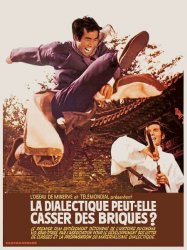
Can Dialectics Break Bricks? (1973)
, 1h30Directed by René Viénet
Origin France
Genres Comedy, Action
Themes Films about anarchism, Politique, Sports films, Martial arts films, Political films
Actors Patrick Dewaere, Chen Hung-lieh, Roland Giraud, Raoul Curet, Michèle Grellier, Dominique Collignon-Maurin
Rating69%





Doublage un film chinois de Hong Kong appelé, en anglais, Crush et, en chinois, Tangshou taiquan dao (唐手跆拳道), originellement sorti en 1972, basé sur l'invasion japonaise de la Corée, dans lequel des pratiquants de taekwondo coréens luttent leurs oppresseurs japonais. Le présent film se rattache au mouvement situationniste initié entre autres par Guy Debord. Son scénario détourné traite des prolétaires tentant de venir à bout de bureaucrates violents et corrompus grâce à la dialectique et à la subjectivité radicale. La violence est enfin choisie du fait de l'incapacité des ces derniers à suivre un argument logique. Le dialogue est riche d'allusions anticapitalistes (Marx, Bakounine, Wilhelm Reich) et évoque des thèmes contemporains : conflits syndicaux, égalité des sexes, mai 68, gauche française et les situationnistes eux-mêmes.
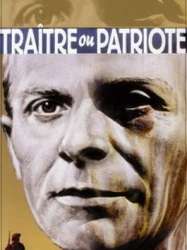
Traitor or Patriot (2000)
Directed by Jacques Godbout
Origin Canada
Genres Documentary
Themes Politique, Documentary films about historical events, Documentaire sur une personnalité, Documentary films about politics, Political films, Documentary films about Quebec politics
Actors Jacques Godbout
Rating67%





It analyzes the place of Quebec Premier Adélard Godbout in history. Godbout is not well-considered by Quebec historians and citizens. Adérald Godbout was the Second World War–era Quebec head of government, and the great-uncle of the director. Godbout advances some theories to explain why his great-uncle was forgotten in the collective memory of the Quebecers. One theory is that Adélard Godbout was more favourable than other political leaders to conscription. Quebec nationalists, at the time, opposed conscription, which they saw as a British imperialist manoeuvre of English Canada to defend the Empire.

Les jours heureux (2013)
, 1h37Directed by Gilles Perret
Origin France
Genres Documentary
Themes Politique, Documentary films about war, Documentary films about historical events, Documentary films about politics, Political films, Documentary films about World War II
Rating64%





La rédaction du programme du Conseil national de la Résistance intitulé : Les jours heureux.
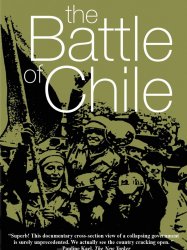
The Battle of Chile: Part I (1975)
Directed by Patricio Guzmán
Genres Documentary, Historical
Themes Seafaring films, Politique, Transport films, Documentary films about law, Documentary films about historical events, Documentaire sur une personnalité, Documentary films about politics, Political films, Films about Latin American military dictatorships
Rating80%





En 1973, alors que Salvador Allende initie un programme de transformations sociales et politiques visant à enrayer la pauvreté, la droite organise une série de grèves. Quand Allende obtient la majorité des suffrages en mars, la bourgeoisie comprend qu’elle ne peut plus avoir recours à des mécanismes légaux, et c’est le coup d’État.

Draquila: Italy Trembles (2010)
, 1h33Directed by Sabina Guzzanti
Genres Documentary
Themes Politique, Documentary films about historical events, Documentary films about politics, Political films, Disaster films
Actors Sabina Guzzanti
Rating74%





Beginning from the earthquake in L'Aquila in 2009, the film investigates the way the "Protezione Civile" reacted to the catastrophe. It is shown as an extension of the government, not respecting the law, and putting political service above its responsibilities of the crisis. Sabina Guzzanti caricatures Prime Minister Silvio Berlusconi and is critical of the government, especially Berlusconi and Guido Bertolaso, the chief of the Protezione Civile. She presents the Italian opposition as invisible and ineffective.

To Die in Madrid (1963)
, 1h25Origin France
Genres Documentary
Themes Films about anarchism, Politique, Documentary films about war, Documentary films about historical events, Documentary films about politics, Documentary films about anarchism, Political films
Actors John Gielgud, Irene Worth, Suzanne Flon, Germaine Montero, Pierre Vaneck, Jean Vilar
Rating79%





1936. Une guerre civile éclate en Espagne. Durant quatre années, Républicains et Nationalistes s'affrontent jusqu'à la dictature franquiste.
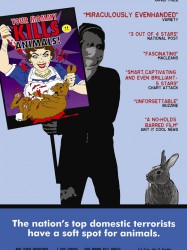
Your Mommy Kills Animals (2007)
, 1h45Origin USA
Genres Documentary
Themes Films about animals, Environmental films, Politique, Films about terrorism, Documentary films about animal rights, Documentaire animalier, Documentary films about law, Documentary films about environmental issues, Documentary films about war, Documentary films about historical events, Documentary films about politics, Documentary films about terrorism, Political films, Documentary films about nature
Rating65%





The film reports on controversies concerning and within the animal rights movement. These include external conflicts between animal rights advocates and medical researchers and restaurant operators, and internal disagreements within the animal rights movement between the animal shelter operators and the confrontationalists who demonstrate outside homes of corporate opponents. The film also discusses the comparison between animal liberation activists and political terrorists, including the FBI's ranking of animal-rights activists as the nation's No. 1 domestic terrorism threat.

Hitler's Reign of Terror (1934)
, 55minutesOrigin USA
Genres Drama, Documentary
Themes Politique, Documentary films about war, Documentary films about historical events, Documentaire sur une personnalité, Documentary films about politics, Hitler, Political films, Documentary films about World War II
Rating52%





As the picture opens, a re-enacted phone call featuring reporter Cornelius Vanderbilt, Jr. in Germany, and narrator Edwin C. Hill in New York is depicted. Then a parade of people carrying torchlights in Berlin, where Jewish works and other political books are burned. Vanderbilt meets with Hill, and then flies out of the country. Hill talks with Vanderbilt about the problems in his country, then a re-enacted interview between Adolf Hitler and Vanderbilt. During a viewing of World War I battle footage, Hitler's home town, Leonidad, Austria, and his parents' graves are pictured. Vanderbilt goes to Vienna, to see Chancellor Dollfuss, and he films several Austrian Nazi riots during a parade. In a re-enactment, Vanderbilt's passport is stolen, and there are several shots of Nazis abusing Jews. In yet another re-enactment, Vanderbilt interviews Crown Prince Wilhelm, and more books are burned. Helen Keller talks to an interviewer about her books, which were burned by the Nazis. Then a conversation Vanderbilt, Kaiser Wilhelm II in Doorn, Holland, and Prince Louis Ferdinand had is re-enacted. Actual anti-Nazi speeches given by prominent Jews and some Gentiles are shown and the Nazis are shown trying to alter the Bible. In the final scene, Congressman Samuel Dickstein of New York and Hill give speeches directly to the audience, explaining the dangers of Nazism.
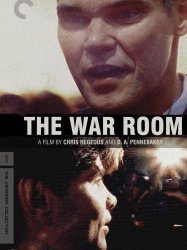
The War Room (1993)
, 1h36Directed by Chris Hegedus, D. A. Pennebaker
Origin USA
Genres Documentary, Historical
Themes Politique, Documentary films about business, Documentary films about historical events, Documentary films about politics, Political films
Rating73%





The film follows James Carville and George Stephanopoulos at first during the New Hampshire Primary, and then mostly in Little Rock, Arkansas, at Clinton Campaign Headquarters. The film follows several key 1992 Campaign events, such as the Clinton Campaign's attack on "Read my lips: no new taxes", the Gennifer Flowers scandal, the New Hampshire primary upset, and others as they played out inside of the Clinton 1992 Campaign.

Genres Documentary
Themes Politique, Documentary films about historical events, Documentary films about politics, Political films
Rating82%





The Revolution Will Not Be Televised opens in 2001 with footage of Chávez as he tours the country. Met with "popular enthusiasm", he speaks at rallies, decrying neoliberalism and the international community's attacks on his character. The film outlines Chávez's rise to power, before covering his day-to-day routine and appearances on his television show, Aló Presidente, which includes a phone-in for citizens to speak with the president. Chávez outlines his aspiration to be seen as a modern-day Bolívar. Clips from Venezuelan and United States news reports demonstrate a "relentless campaign" against the president.
 Connection
Connection